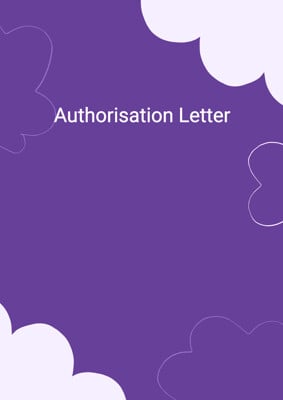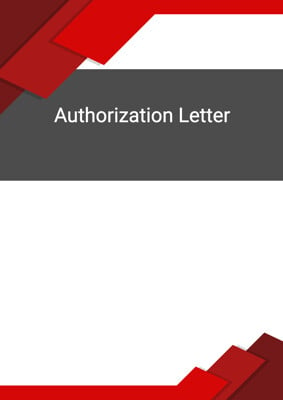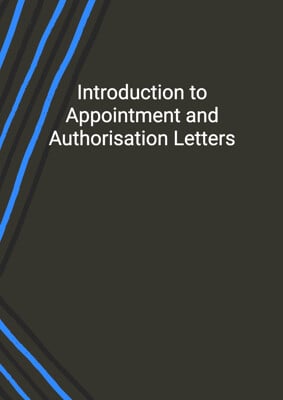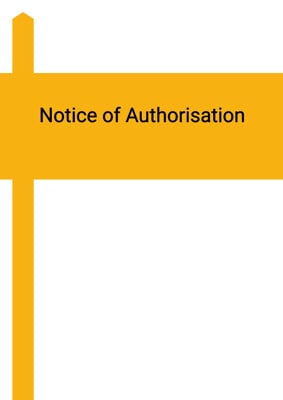How to Tailor the Document for Your Need?
01
Create Document
Fill in the details of the parties. You can click the "Fill with Member’s Information" button to complete it with information saved to your account.
02
Fill Information
Please fill in any additional information by following the step-by-step guide on the left hand side of the preview document and click the "Next" button.
03
Get Document
When you are done, click the "Get Document" button and you can download the document in Word or PDF format.
04
Review Document
Please get all parties to review the document carefully and make any final modifications to ensure that the details are correct before signing the document.
Document Preview
Document Description
The General Agency Agreement is a document that establishes a legal relationship between two parties, namely the agent and the principal. The agreement outlines the terms and conditions under which the agent will act as a representative of the principal and perform certain services on their behalf. It is important because it clearly defines the roles and responsibilities of both parties, ensuring that there is a mutual understanding and agreement.
The document begins with a brief introduction, stating the names and principal places of business of the agent and the principal. It then proceeds to explain the purpose of the agreement, which is to appoint the agent as the representative of the principal to perform the services defined in the agreement.
The agreement contains several sections, each addressing different aspects of the agency relationship. The first section is the 'Definitions and Interpretation' section, which clarifies the meaning of certain terms used throughout the agreement. This section ensures that both parties have a clear understanding of the language and terminology used in the document.
The second section is the 'Agency Relationship' section, which establishes the agency relationship between the agent and the principal. It states that the principal appoints the agent as its agent and instructs the agent to perform the services outlined in the agreement. It also specifies that the agent's authority to bind the principal is limited to the services detailed in the agreement and that the agent is not authorized to bind the principal in any way beyond the scope of the services defined herein.
The third section is the 'Agency Fees' section, which outlines the payment terms for the agent's services. It states that the principal shall pay the agent an agency fee for the full, prompt, and satisfactory performance of the services. It also explains the invoicing process and the due date for payment. Additionally, it addresses any expenses that the agent may incur while performing the services and specifies the procedure for obtaining the principal's consent for expenses exceeding a certain limit.
The fourth section is the 'Liabilities and Indemnities' section, which defines the liabilities and indemnities of both parties. It states that the rights and benefits held and received by the agent through the principal's agency under the agreement shall only be enforceable by the agent through such agency. It also limits the liability of both parties for indirect or consequential loss.
The fifth section is the 'Term and Termination' section, which specifies the duration of the agreement and the conditions for termination. It states that the agreement shall be effective from the date and continue until terminated in accordance with the terms of the agreement. It also allows either party to terminate the agreement upon one month written notice to the other party.
The sixth section is the 'Variation and Severability' section, which addresses the amendment and variation of the agreement. It states that any amendment or variation of the agreement shall be in writing and duly executed by or on behalf of each party. It also provides for the severability of any invalid or unenforceable provision of the agreement.
The seventh section is the 'Counterparts' section, which allows the agreement to be executed in any number of counterparts. It states that each counterpart is an original but all counterparts together constitute one and the same instrument.
The eighth section is the 'Governing Law and Jurisdiction' section, which specifies the governing law and jurisdiction for any disputes arising out of the agreement.
The ninth section is the 'No Rights under Contracts for Third Parties' section, which clarifies that a person who is not a party to the agreement shall have no right under any law to enforce any of its terms.
The tenth section is the 'Notices and Service' section, which outlines the requirements for giving notice under the agreement. It specifies that any notice must be in writing and served by email, hand delivery, or post. It also provides the addresses and contact details of the parties for the purpose of giving notice.
In conclusion, the General Agency Agreement is a comprehensive document that establishes the agency relationship between the agent and the principal. It covers various aspects of the relationship, including definitions, services, fees, liabilities, termination, and more. By clearly defining the rights and obligations of both parties, the agreement ensures a smooth and mutually beneficial working relationship.
How to use this document?
1. Review the document: Familiarize yourself with the General Agency Agreement and understand its purpose and importance.
2. Identify the parties: Determine the names and principal places of business of the agent and the principal.
3. Understand the agency relationship: Recognize that the agent is appointed as the representative of the principal to perform the services defined in the agreement.
4. Define the services: Note that the agent's authority to bind the principal is limited to the services detailed in the agreement and that any service outside of the scope will require a new agreement.
5. Discuss agency fees: Discuss and agree upon the agency fee for the agent's services, including the invoicing process and the due date for payment.
6. Address expenses: Establish a procedure for handling expenses incurred by the agent while performing the services, including obtaining the principal's consent for expenses exceeding a certain limit.
7. Understand liabilities and indemnities: Be aware that the rights and benefits held by the agent are enforceable only through the agency and that both parties have limited liability for indirect or consequential loss.
8. Determine the duration and termination: Decide on the duration of the agreement and the conditions for termination, including the notice period required for termination.
9. Consider variation and severability: Understand that any amendment or variation of the agreement must be in writing and that invalid or unenforceable provisions will be deemed not included in the agreement.
10. Execute the agreement: Sign the General Agency Agreement in counterparts, ensuring that each party has a copy of the fully executed document.
11. Comply with governing law and jurisdiction: Adhere to the governing law and jurisdiction specified in the agreement for any disputes arising from the agreement.
12. Communicate effectively: Maintain open and clear communication with the other party, addressing any disputes or issues that may arise.
13. Keep records: Keep accurate records of the services performed, invoices issued, and expenses incurred, ensuring that all documentation is organized and easily accessible.
14. Seek legal advice if needed: If you have any doubts or concerns about the agreement or its implications, consult with a legal professional for guidance and clarification.
Not the right document?
Don’t worry, we have thousands of documents for you to choose from:
























